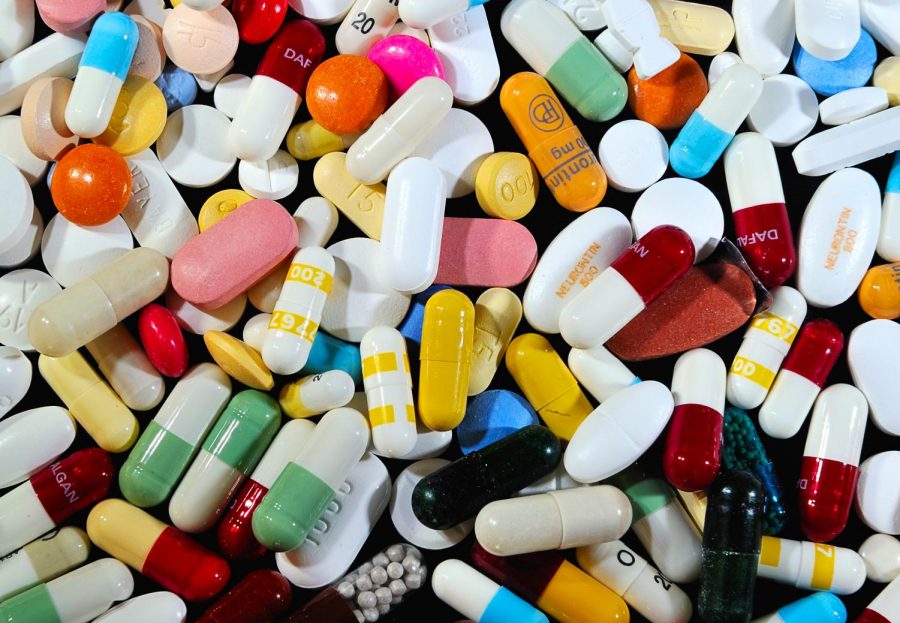The War on Drugs: History and Current Effects
November 4, 2019
Drugs in America are regarded with harsh punishment and treated as a criminal issue. Instead of relying on the xenophobic and factually incorrect War on Drugs, the actual effects of drugs as well as their impact on society should be accounted for. The War on Drugs, beginning in the early 1900s, took off primarily with Harry Anslinger. Anslinger used the scientifically unsupported idea that marijuana is a violence-inducing drug and connected this theory to black and Hispanic people. By adopting the Mexican name “marihuana,” as it was spelled at the time, as opposed to cannabis, Anslinger strongly coupled marijuana and the newly arrived Mexican immigrants. In addition, he initiated a narrative that marijuana caused black people to “forget their place in society.” Anslinger’s ideals influenced society’s treatment of drug offenses detrimentally; immediately after the education of this blatant propaganda, black people were three times more likely to be arrested for violation of narcotic drug laws than whites, while Mexicans were ten times more likely. In 1952, the Boggs Act, which made sentencing for drug convictions mandatory, was passed, allowing for further discrimination. In Nixon’s administration, the Controlled Substances Act of 1970 was passed, making marijuana a schedule one drug. Schedule one drugs are normally drugs that are often abused and have no medical use. Other schedule one drugs include LSD, ecstasy, and heroin. In 1971, the War on Drugs was once again heavily initiated by Richard Nixon, who utilized it as a way to incarcerate those who disagreed with him politically. Recently, however, officials from Nixon’s cabinet have confirmed that Nixon’s enforcement of the War on Drugs was only part of his effort to incarcerate black people and hippies, who did not support Nixon and his administration. Because they knew they would be unable to gain these demographics’ support, he criminalized them. Since 1971, the War on Drugs has cost the United States one trillion dollars.
In the history of the War on Drugs, there have been detrimental effects on minorities. In 2010, the ACLU reported that, although both groups consume marijuana at approximately the same rate, black people were four times more likely to be arrested for marijuana than white people. Not only have these policies affected minorities, but it has meaninglessly placed hundreds of thousands of all people in jail a year. Another study found that one of every 13 black people of voting age is denied the privilege to cast a ballot as a result of laws that disenfranchise individuals with felony convictions. Now, according to drugpolicy.org, 700,000 people are still arrested for marijuana offenses each year and nearly 500,000 people are behind bars for nothing more than a drug law violation. They also reported that the yearly number of accidental overdoses in America is 68,000. The number of people incarcerated in the U.S. in 2016 was 2,205,300, leaving America with the highest incarceration rate in the world.
A common misconception about the War on Drugs is that scientists determined that drugs are unfit for consumption at any time because of their negative effects on the human body; however, this is not the case. In many cases, drugs are not at all what people perceive them to be. This misconception leads to the constant incarceration of drug possessors. It is clear that the United States utilizes punishment as a mechanism to handle drug abuse, while we should be treating drug use as both a mental health issue and something that is okay to use with proper frequency, regulation, and safety procedures. Other countries are a perfect example of the proper way to execute drug laws. For example, Portugal had a major drug reform in 2001, decriminalizing all drugs for personal use. In the years before the reform, the number of drug-related deaths had risen monumentally; rates of HIV, AIDS, Tuberculosis, and Hepatitis B and C among people who inject drugs were speedily escalating. Despite many worries that the reform would cause a major increase in drug use, it has not. In addition to the decriminalization of all drugs, Portugal has adopted a more health-centered approach to drugs and their social concept of drugs has changed tremendously. Instead of incarcerating drug users, they treat it as a medical issue. Around 25 other countries have implemented a decriminalization policy much like Portugal’s, but the United States is extremely behind on this policy change. One of the democratic presidential candidates even passed a crime bill in congress in 1994 which promoted modern mass incarceration for drug offenses. Joe Biden’s crime bill advocated for a harsh crackdown on drug use. His bill implemented tougher prison sentences at the federal level and incentivized states to do the same. It also supplied funds for states to build more prisons, funded 100,000 more cops, and supported grant programs which encouraged police officers to perform more drug-related arrests. Biden is an essential figure in both the War on Drugs as well as modern mass incarceration but is not recognized for his horrible bill. To this day on his campaign trail he regularly disputes any idea that he has encouraged the War on Drugs or mass incarceration and has blatantly lies about his crime bill. To clarify, there were positive aspects of this bill as well, primarily to attract members of congress such as Bernie Sanders, who ultimately voted for the bill, criticizing a vast portion of the bill but voting for it because of the The Violence Against Women Act passed within the bill. Today, Bernie regularly speaks out against the War on Drugs, recently tweeting, “No more ‘war on drugs,’” and proceeding to state that it is racist. Biden’s 1994 crime bill disproportionately impacts black and brown communities.
Because of the horrific modern War on Drugs, initiated by Nixon and other prominent political figures, drugs have been polarized in America. Americans are so colossally under educated on the topic of drugs to the point where the common perception is skewed so far that only one presidential candidate has openly considered just the decriminalization of drugs: Andrew Yang. Yang has spoken about his preference for the decriminalization of all drugs on numerous occasions. This would curb mass incarceration and provide legal and safe substances. Even further, complete legalization of drugs may have an extremely beneficial impact on America. Although it would require a massive shift in social policies and treatment of drugs, it would conquer drug cartels, provide funding from taxation, and make drugs safer because of regulation and legalization. In addition, services for overdosing and drug fatalities would also be available. Despite many opinions that drug use would increase rapidly as a result of legalization, this is incredibly unlikely; statistics show that people with decent support systems do not usually rely on or use drugs, and this has not been the case in any other country. In addition, with better rehabilitation programs and a different societal view on drugs, the narrative on drugs in America could allow legalization or, at the very least, decriminalization in the near future. It is clear that the narrative has shifted radically towards the legalization of marijuana, but other drugs are still labeled as evil substances with merit of incarceration. Still, although we have legalized marijuana in a number of states, America is far behind other countries in treating the drug issue justly.



